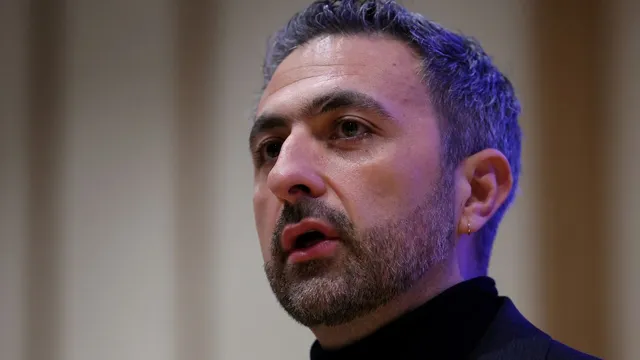- By Prateek Levi
- Thu, 06 Nov 2025 03:20 PM (IST)
- Source:JND
Mustafa Suleyman was born in a humble London neighbourhood, near Caledonian Road. His father was a taxi driver and his mother a nurse. He grew up with two brothers, and the only expectation set before him was that education was the route to opportunity. He excelled at Thornhill Primary School and then Queen Elizabeth's School in Barnet because of not just his academic achievements but also because of his curiosity – something that was driven by questioning how society worked rather than why it was this way or that.
One of the key influences in his early life was a teenage friendship. His best friend's brother was Demis Hassabis, a chess prodigy obsessed with intelligence and how to replicate it in machines. Their conversations weren't about grades or careers; they pondered how smarter technology might solve real-world human problems – an imagination that would lead Suleyman through his future.
The Turning Point at Oxford
Excellence proved a calling card, and Suleyman gained admission to Mansfield College, University of Oxford, to study Philosophy, Politics, and Economics – a course known for its leadership alumni. But the classroom soon felt confining. At 19, he made the daring decision to leave university without graduating, picking practical experience over theoretical study.
It wasn’t rebellion – it was a considered decision: he wanted to address meaningful challenges immediately rather than wait for a formal qualification to validate him.
Learning Through Social Impact
Before delving into technology, Suleyman had worked on things that directly impacted people's lives. As a teenager, he co-founded the Muslim Youth Helpline for young people to call when they needed help in times of distress. Such early exposure to mental health and community needs gave him an insight into the human side of problem-solving.
He later served as a human rights officer working for London Mayor Ken Livingstone and co-founded Reos Partners, a consultancy that guides governments and international organisations on social change. These roles taught him nuance in policy-making, how to work out systemic reform, and the importance of collaboration.
Co-Founding DeepMind
By 2010, artificial intelligence was an emerging global frontier. Suleyman teamed up with Hassabis and Shane Legg to co-found DeepMind, focusing on systems that could learn independently. It wasn't very long before the company made waves with its innovative machine learning research.
After Google acquired DeepMind in 2014, Suleyman was involved in applying advanced AI models to real-world products, such as healthcare tools for the NHS and energy-saving initiatives for Google's data centres. These experiences marked his entry into the practical challenges of deploying cutting-edge AI at scale.
However, his leadership did not come without controversy. After some complaints from employees, Suleyman stepped away from day-to-day operations and eventually joined Google's technology policy division, an experience that shaped his thinking on responsible AI development and the evolution of leadership in tech.
A New Vision with Inflection AI
In 2022, Suleyman left Google to co-found Inflection AI with Reid Hoffman to create personal AI that is empathetic and human-centric. Pi, their chatbot, works on making interactions feel supportive rather than transactional, reinforcing his vision of technology collaborating with people rather than overwhelming them.
Leading Microsoft's Consumer AI Division
In 2024, Microsoft named Suleyman chief of Microsoft AI, a new group focused on consumer products. He is now at the centre of strategic thinking about how to weave AI into the fabric of daily life, from software used to create documents and spreadsheets to virtual personal assistants. A large cadre of engineers followed him from Inflection AI, a testament to the size of his mandate.
An Education That Never Ends
Suleyman's story breaks from tradition. He went to good schools and into Oxford, then deliberately mapped a route through activism, public policy, and finally, global AI leadership. Each step taught something that no degree could have provided.
ALSO READ: macOS Tahoe 26.1 And iPadOS 26.1 Deliver Fresh Look And Improved Functionality
His story underlines an essential fact: learning doesn't stop with a qualification, and success often comes via curiosity, purpose, and calculated risks rather than via a straight academic trajectory. Mustafa Suleyman continues to influence the trajectory of AI-proof that your beginnings don't prescribe your destination and that your best education often comes via experiences that challenge you to think through a different lens.

